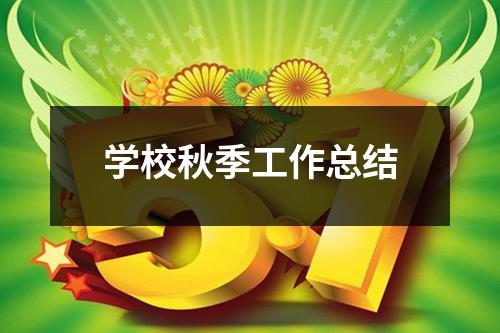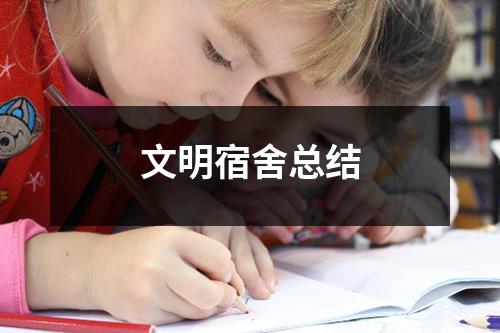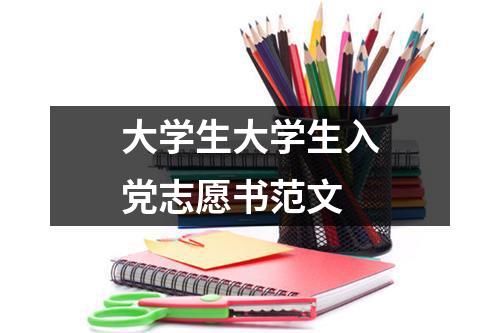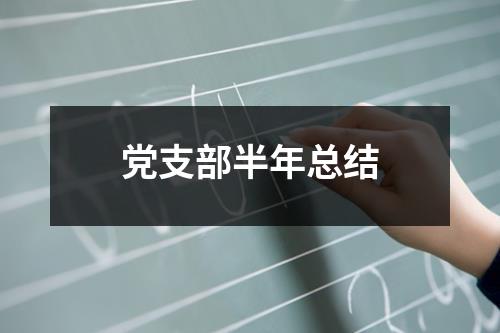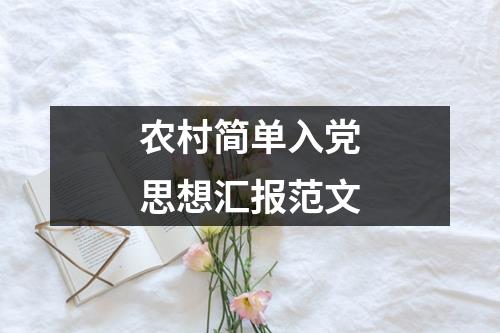【简介】以下是小编为大家准备的冀教版六年级英语上册总复习总结(共16篇),供大家参考借鉴,希望可以帮助到有需要的朋友。在此,感谢网友“给你个大嘴巴巴”投稿本文!

篇1:冀教版六年级英语上册总复习总结
第一单元
一、 单词: live(单三)lives, want(单三)wants, half kitchen house toilet bedroom,
living room bathroom study (复数studies) fridge dish(复数dishes)
反义词:dry-wet, dirty-clean,
come(现在分词) coming make(现在分词)making cook(现在分词)-cooking
watch(现在分词)-watching sit(现在分词)-sitting read(现在分词)-reading,
write(现在分词)-writing do(现在分词)-doing play(现在分词)---playing,
二、 课文重难点:
1. at+较小的地点 如at school 、at home in+大地点 in China in Beijing
2. This is “这是….”用来介绍他人。This is my friend, Li Ming.
3. want 想要 want to do …想干….. 如:I want to fly kites.我想放风筝。
4.Li Ming’s plane will arrive at five o’clock. 几点几分用at
5. What time is it now? It’s half past five.现在几点了?现在5:30.
6. Did you have a good trip? Yes, thanks. but I’m tired你旅行愉快吗?是的,谢谢。但是我有些累。
7. Let’s go home./ Let me help you.让我们回家。让我帮助你。
8. learn English/Chinese 学英语/汉语
9. This is / That is / These are/ Here is/ Here are
10.I will show you the rooms in my house.我将领你们参观房子的各个房间。
11.on the first/second floor 在一/二楼(在几楼要用序数词和on)
12.I make lunch in the kitchen 我在厨房做午饭
13.I do my homework in the study.我在书房做作业
14. Time for breakfast.= It’s time for breakfast.早餐时间到了。
15. It’s time for sth./ It’s time to do sth .是做什么的时间了。
It is time for dinner=it is time to have dinner.
16. Would like sth./ Would like to do sth.想要什么。想要做什么。
17. What would you like for breakfast / lunch/dinner? (三餐前面要用for)
I would like…for breakfast / lunch/dinner?(通常would like 问would like答)
18. Breakfast is ready. wash dishes make breakfast/lunch/dinner
19. mum is cooking eggs in the kitchen 妈妈正在厨房煎鸡蛋。
20.Let’s put some dishes on the table.让我们把盘子放到桌子上。
21.I only ate an apple for lunch.午饭我只吃了一个苹果。
22. What’s for supper?晚餐有什么?
23. What are you doing? / We are washing hands. 你正在做什么?我们正在洗手。
What are they doing? (通常doing 问 ing答)
24. Now the dishes are clean and dry.现在盘子洁净干爽。
25. I wash the dirty dishes.我洗脏盘子。
26. May I help you? Sure.我可以帮你吗?当然。
27.watch TV / read the newspaper/write a letter
28. Do you like this show? Yes,I do/No,I don’t.(通常do问 do 答)
29. I am sitting at a small table.我正坐在小桌子旁边
篇2:冀教版六年级英语上册总复习总结
第四单元
单词:Christmas, Christmas tree(s), Christmas lights, holiday, song,
card(s), gift(s), Santa, special,bring(单三)brings, west(形容词)western
Christmas tree 圣诞树 / Christmas gifts 圣诞节礼物today, yesterday, tomorrow, often, find
be(过去式)-was/were see(过去式)-saw bring(过去式)-brought
walk(单三)—walks (过去式)-walked bring(单三)---brings(过去式)---brought
二、 课文重难点:
1. What’s Christmas? It’s a Western holiday.圣诞节是什么?是西方的节日。
2. Who is Santa? He is a merry man in red clothes.他是一个穿红衣服的快乐男人。
Children say he brings gifts on Christmas 孩子们说他给孩子们带礼物。
3. invite +人+ to+地点.
We invite our family and friends to our house.我们邀请我们的亲朋好友道我们的家里来。
4.Merry Christmas!回答Merry Christmas!
Happy New Year 回答 Happy New Year
注意:Happy birthday 回答 Thank you
5. bring +物品+ for +人(宾格).
They bring gifts for us.他们给我们带礼物。
I bring a book for him.我给他带了一本书。
6. give +人+物品.
We give our family and friends gifts, too.我们也给我们的家人和朋友带礼物。
My mum always gives me a lot of love
7. We have fun together.我们在一起很愉快。
8. When is Christmas? It’s on December 25.
9. What would you like? I would like…
What would you like to do? I would like to buy a gift.
10. put up a Christmas tree.我装饰圣诞树
put up 装饰,包装 it them要放到put up 中间 put it up put them up
步骤:First, I am going to put the lights on the tree.
Then I’m going to put Christmas things on the tree. the star always on the top.
Third/Next we put our gifts under the tree.
11. be going to+动词原形. What are you going to do?
Danny is going to walk to the park.
12. bring+物品 +for +人
I am going to bring some lights for you.我要给你带些彩灯。
13.write +物品+ to +人.
We are going to write Christmas cards to our friends and family.
我们要给我们的家人和朋友圣诞卡片。
14. Are you going to send a card?
15. Let’s find a card with Santa on it. 让我们找一张有圣诞老人的圣诞卡片。
16. Jenny’s family is getting ready for the Christmas holiday.詹妮一家正在为圣诞节做准备。
Yesterday I helped Jenny put up the Christmas tree.昨天我帮助詹妮装饰圣诞树。
Tomorrow we are going to buy Christmas gifts.明天我们要买圣诞礼物。
17.Danny and Li Ming are shopping for Christmas gifts in a shop.
18. buy+物品+for+人
I want to buy some gifts for my family .我想给我的家人买些礼物。
19.give +人+ 物品 give+物品+ to+ 人.
I am going to give them a special gift from china for their Christmas tree.
Lynn gives Li Ming the gift 琳给了李明礼物。
Li Ming gives his gift to Mr. and Mrs. Smith.李明把礼物给了史密斯先生和史密斯夫人。
20. What do you want to buy? I want to buy gifts.
21. What would you like for Christmas?你圣诞节想要什么?
I would like a big new car.我要一个又新又大的汽车。
22.Let’s go and see. 让我们去看看
23.I don’t think so 我不认为如此。
24.Santa brought me toys.圣诞老人给我带了礼物。
25.I can take pictures and send them to my mother and father.
我能照相并把相片送给爸爸和妈妈
26.This is for everyone.这是给每个人的。 it is from me.
27.. I asked my mother to send it. 我让我的妈妈寄过来的。
ask+人+ to do
My English teacher asks me to read English everyday
篇3:冀教版六年级英语上册总复习总结
第三单元
单词: spring, summer, autumn, winter, scarf, ice, winter clothes
put(现在分词)putting、skate滑冰 think, teach,fall down fun, favourite
leaf(复数)---leaves, snowman(复数) snowmen,,
反义词put on ---take off up---down teach----learn
rain(形容词) rainy, wind (形容词) windy, sun (形容词)sunny,
snow(形容词) snowy cloud (形容词) cloudy
二、课文重难点:
1. There are four seasons in a year.一年有四季
There is ice and snow in winter.冬天有冰和雪。
2.The summer sun is hot.夏日的骄阳似火。
3.The leaves turn red and yellow in autumn.叶子在秋天变成红色和黄色
4. What a hot, sunny day!多么热、晴朗的天啊!
5. Jenny and Li Ming are going out to play with Danny.詹妮和李明要出去和丹尼玩。
6. What do you like to do in winter?你冬天喜欢做什么?
7. I like to skate on the ice. 我喜欢在冰上滑冰。
8. Can you skate? / Can you teach me? Yes I can. /No I can;t
9. I want to go outside to play in the snow.
10. Why? Because it’s cold outside.
11.What a cold snowy day!多么寒冷多雪的天气啊!
12.Let’s make a snowman.让我们堆一个雪人。make snowmen / make a snowman
步骤: First. make a big snowball for his body.
Second/ Then. make a small snowball for his head.
Third. put the small snowball on the big snowball.
Fourth make a face
13. I think I can.
14.. I have two sticks for his arms. I have two stones for his eyes.
I have a carrot for his nose. I have two potatoes for his ears.
It doesn’t need legs or feet.它不需要腿和脚。
15. a skating lesson .一堂滑冰课 an English lesson 一堂英语课
16.I am going to teach you to skate.我要教你滑冰。
17.Can you stand up on the ice?你能站在冰上吗?
stand up / come on / fall down
18. teach +人(宾格)+ to do事情 I teach you to learn English.
He teaches me to fly kites.
19.Li Ming skates over to Danny.李明从丹尼身旁划过。
20.You learn fast.你学的很快。
21. What’s your favourite …?你最喜欢的……. favourite前面用…..的
22.I love to plant trees.我喜欢种树。
23. I like to do.我喜欢去做某事。
篇4:冀教版六年级英语上册总复习总结
第二单元
一、单词:always often sometimes never bus stop bus driver school bus
subject class math science art PE music temperature,
(反义词)hot---cold, ill-----healthy健康的
名词复数规则
1.一般情况下,直接加-s,如:book-books, bag-bags, cat-cats, bed-beds
2.以s. x. sh. ch结尾,加-es,如:bus-buses, box-boxes, brush-brushes, watch-watches
3.以“辅音字母+y”结尾,变y为i, 再加-es,如:family-families, city - cities
4.以“f或fe”结尾,变f或fe为v, 再加-es,如:leaf-leaves
degree(复数)degrees box—boxes bus—buses
tomato –tomatoes potato---potatoes photo-----photos (土豆,西红柿+es,其余+s)
man(复数)---men, woman(复数)---women, child(复数)---children foot(复数)---feet
2. 频率副词用法:一般都放在动词前,am/ is/ are的后面。
如:He never wears dresses./ he is always late.
二、 课文重难点:
1.I always have my umbrella on a rainy day.我总是在下雨时打伞。
2.Here comes the school bus.校车来了
3. I live too far from my school 我住的离学校很远。 on the school bus.在校车上
4. Do you go to school by …? 你……去上学?
5. Jenny often goes to school by bus.詹妮经常坐公交车去上学
Sometimes she rides her bike. she never walks.有时她骑自行车。她从不步行去上学。
一般现在时当主语为第三人称单数(he, she, it)时,要用动词的第三人称单数,主语为复数时,要用动词原型。如:Mary likes Chinese. We like cat。
动词+s的变化规则:
1)一般情况下,直接加-s,如:cook-cooks, bring--brings
2)以s. x. sh. ch. o结尾,加-es,如:guess-guesses, wash-washes, watch-watches, go-goes
3)以“辅音字母+y”结尾,变y为i, 再加-es,如:study-studies
6. Where are you from? I am from China/ Bao Ding来自中国保定。
7、What subjects do you have in your school?你在学校有哪些科目?
8、How many classes do you have each school day? 每天你在学校有多少节课?
Three classes in the morning and two in the afternoon.上午三节,下午两节。
9. How’s the weather today? It’s rainy.今天天气怎样?多雨。
10. What’s the temperature? It’s ten degrees.气温多少度?十度。
What’s the chicken’s temperature?鸡的体温温是多少?
11.The temperature of a healthy chicken is always 41.5degrees.健康的鸡的体温总是41.5度。
12. This/That is a/an/one…+单个名词
These/ Those are (some/many) …+名词复数
13. These men /These women/ These children are young /singing/playing.
14. Do you always…? / Does he often…
15. walk to school / help his mother / ride my bike / do your homework
16. Let’s put…for… Let’s put an A/O/S/N for always/often/sometimes/never.
篇5:冀教版中考英语总复习习题
16.——How do you study a test?
—— I study working a group.
A. for, in, with B. for, by, at
C. for, by, with D. of, in, by
17.——Hey! Don’t you remember me?
——Wow! Paula? You used to ________ curly hair.
A. be B. are C. have D. has
18. Sixteen-years-olds shouldn’t ______ to go to an Internet bar.
A. be allowed B. be allow
C. allow D. are allowed
19. ——Do you feel tired?
——No, I don’t. If I were tired, I ______a rest.
A had B would have
C will have D have
20. ——Tom, where is your father?
——I’m not sure. He_______ in his office.
A. is B. may be C. maybe D. may
21. I don’t like people ______ talk much but do little.
A. who B. whom C. which D. whose
22. ——Where would you like to go ?
——I’d like to go ________.
A. warm somewhere B. place warm
C. somewhere warm D. warm place
23. ——You look so , don't you?
——Yes, I've got a birthday present.
A. sad B. happy C. tired D. worried
24. ——Mom, ________ is my MP4?
——I put it in your backpack.
A. what B. how C. whose D. where
25. ——I’m not hungry but thirsty.
——________.
A. I’m hungry, too.
B. What about some cakes?
C. I’m happy to hear that.
D. How about a glass of water?
26. ——________are you talking about?
——The Olympic Games in Beijing.
A. What B. Whom C. How D. Where
27. ——Why not come and join us in the game?
——_______. But I must meet Mr Smith at his office now.
A. I’d like to B. Let’s go
C. Yes, please D. No, problem.
28. ——My clock doesn’t .
——Let me have a look. Maybe I can help you.
A. work B. stop C. open D. answer
29. ——We can use QQ to talk with each other online.
——Really? Could you please show me _______ it?
A. what to do B. how to do
C. when to do D. why to do
30. In which of the following places can you often see this sign?
A. In a park. B. In a school.
C. In a science museum. D. In a street.
篇6:冀教版中考英语总复习习题
“What’s the matter, mum?”
As soon as I enter the door, I find that my mother is 31 . It’s unusual –she usually 32 the door and welcomes me with a smile!
“She’s dying,” mum says sadly. I 33 what she says. The tulip (郁金香),mother’s 34 is dying.
A month ago, we moved 35 our new house and mum bought a very beautiful tulip. Mum liked it very much. 36 she was free, she would sit 37 her armchair beside the tulip and enjoys its beautiful color 38 inviting smell.
She treated it like a baby and looked after it 39 . She put the tulip by window and moved it from one place to 40 to give the tulip enough sunshine. The first thing she did when she 41 every morning was 42 the tulip. Mum also fertilized(施肥)it many times.
She hoped that with great care, the tulip would become more and more beautiful and 43 . But the tulip was dying 44 too much sunshine, water and fertilizer.
It’s true that mother loved the tulip. But this kind of love 45 be harmful(有害的). Love can sometimes kill what you love.
31.A.happy B.unhappy C.pleased D.pleasure
32.A.closes B.opens C.keeps D.takes
33.A.know B.love C.think D.find
34.A.favourite B.hate C.unlike D.like
35.A.into B.around C.across D.with
36.A.Though B.Because C.After D.Whenever
37.A.at B.in C.on D.under
38.A.but B.and C.for D.or
39.A.happily B.brightly C.carefully D.usually
40.A.other B.place C.two places D.another
41.A.got up B.made the bed
C.played piano D.washed her face
42.A.to take B.to cut C.to water D.to pull
43.A.dry B.strong C.wet D.old
44.A.because B.for C.since D.because of
45.A.must B.should C.can D.need
篇7:冀教版六年级英语上册期末复习重点
一、主要单词:
museum博物馆 bookstore书店 cinema电影院 turn 转弯 hospital医院 left向左 post office 邮局 science科学 right向右 straight笔直地 crossing十字路口
二、习惯语搭配:
post office邮局 science museum科学博物馆 pet hospital宠物医院 Italian restaurant意大利餐馆 Beihai Park北海公园
Palace Museum故宫博物院 go straight直走 turn right/left右/左转 next to挨着 in front of...在...前面 near the park在公园附近on Dongfang Street在东方大街上
三、惯用表达式:
Excuse me 打扰一下 Follow me, please!请跟着我!
四、公式化句型:
1、问路的句型及其答语:
问句:Where is the + 地点? ···在哪儿? 答语:It’s + 表示地点的词语。
next to the bookstore, near the hospital/post office, over there,
on Dongfang Street, in front of the school...
2、询问怎么到某地的句型及其答语:
问句:How can +主语 + get (to)+地点? ···怎么到···? 同义句型:
Can you tell me the way to +地点? Where is + 地点?
Which is the way to +地点?
答语:Turn +方向+表示地点的介词短语。 ···转。 at the cinema at the corner near the post office...
篇8:冀教版六年级英语上册期末复习重点
一、主要单词:
by乘 bus公共汽车 on foot步行 plane飞机 taxi出租车 ship(大)船 subway地铁 train火车 slow慢的 stop停下 always 总是,一直 usually 通常 often经常 sometimes 有时候 never 从来不
二、习惯语搭配:
by bike/bus/plane/subway/train/ship/taxi/ferry
骑自行车/乘公共汽车/飞机/地铁/火车/船/出租汽车/渡轮
take the No.57 bus乘57路公共汽车 on foot步行 slow down慢下来
pay attention to注意 traffic lights 交通信号灯 look right向右看
cross the road横穿马路 get off下车 at home在家
traffic rules交通规则 get to到达 get on 上车 be far from„表示离某地远
三、惯用表达式:
Wait!等一等! Hooray太好了! I see. 我明白了。Go at a green light 绿灯行 Stop at a red light 红灯停 Wait at a yellow light 黄灯等
四、公式化句型:
1、如何询问对方的出行方式:
How do you come(to)+地点? 你(们)怎么来···的?
2、如何用must表示必须做某事:
某人+must+动词原形(+其它). ···必须···。
3、告诫别人不要做某事的句型:
Don’t +动词原形(+其它). .不要/别···。
篇9:冀教版六年级英语上册教学计划
第一单元
Unit 1 Li Ming Comes to Canada
一、General goals for unit 1
Levels 7 and 8 in the learning English program tell a story . Li Ming comes to Canada to learn English . He stays with Jenny’s family and experiences Canadian schooling , food and culture .He also teaches Jenny’s family about Chinese culture .
In this unit , Li Ming arrives in Canada and learns , along with your students , vocabulary for common household objects , rooms and tasks .
二、Specific goal for unit 1
1、Mastery vocabulary
Students can read , write , say and aurally understand the following vocabulary :
Adjectives : clean dirty
Nouns for rooms and furniture : bathroom bathtub dishes kitchen living room refrigerator room shower sink stove toilet HBBAN.CN
Possessive pronouns : mine yours
Standard question : What time is it ? It’s .
Transitive verbs : cook dry make wash
2、Oral vocabulary
Students can say and aurally understand the following vocabulary :
Common phrases :
Let’s help (name) (verb) (noun)
What would you like for (breakfast lunch supper ) I would like (food)
3、They can understand the meaning of more extra words .
三、Important point : 1 and 2
Difficult point : Master the pronunciation of nouns for rooms and furniture and ask and answer the important sentences .
HBBAN.CN
四、Class time : Eight classes .
第一课时 Lesson 1 At the Airport
Step 1 : Class opening and Review
1) Greeting
2) Review
① Play“ The number game” to review number , play with numbers up to ten thousand .
② Review the phrases :
What day is it ? What time is it ?
Step 2 : Presentation and practice
1、Teaching “ What time is it ? ”
1) Use a big clock to teach “ What time is it ? ”
2) Demonstrate : More the hands on the clock as I ask and answer the question . Then get volunteers to answer the question . Here’s a simple way to say some times in English .
1:45 one forty five
WWW。hbban。cN
2:10 two ten
5:37 five thirty seven
8:00 eight o’clock
3)Extend knowledge :
2:10 two ten or ten past two
4:30 four thirty or half past three
9:00 nine o’clock or nine
4) Practice :
① Practice in pairs
②Ask the volunteers to more the hands on the clock as they ask and answer the question .
2、Teaching “ the text ”
1) When the students listen to the tape , think over the question :
①When do Jenny , Danny , Li Ming live ?
②Why is Li Ming coming to Canada ?
③When does Li Ming arrive ?
When will Li Ming go home ?
How long will Li Ming like in Canada ?
④How does he come ?
⑤What time did Li Ming’s plane arrive ?
⑥Who meets him at the airport ?
⑦Did he have a good trip ?
2)Read the dialogue and discuss the questions in groups .
3)Ask the students to answer the questions .
4)Read by themselves , then read role-play .
Step 3 Consolidation
Make up a dialogue about meeting someone at the airport . Divide the class into small groups . Ask each group to include in their dialogue the question and answer . “ What time is it ? It’s ”Enounce the students to be creative and to use as many English phrases as they can .
Step 4 Summary
This lesson we understand that Li Ming arrived Canada . Danny and Jenny meet Li Ming at an airport . We learned how to ask and answer the phrases “ What time is it ? It’s ”.
篇10:冀教版语文一年级上册总复习知识
二类字:
识字与学拼音:
1、家 爸爸 妈妈 一个
2、我 国 子 朵 坡
3、白 鹅 河 乐 热
4、小 丽 五 大地 你
5、山 上 树 东 西 住
6、去 曲 绿鱼
7、泼 播 门 福
8、天 了 又 的 呢
9、鸽 公 鸡 席
10、字 丝 吃 日 出
11、叶 风 吹 飞 开
12、秋 手 笑 走 双
13、节 八 月 十 夜儿
14、面 云根琴 春
15、青 黄瓜 灯 笼
鸽子 蝌蚪 白鹅 公鸡 红旗 凉席
写字 刺猬 吐丝
织毛衣 吃苹果 狮子 日出
泼水 扫院子 贴福字 听广播
篇11:冀教版语文一年级上册总复习知识
背诵篇目:
1 一去二三里 【宋】邵雍
一去二三里,烟村四五家。亭台六七座,八九十枝花。
2 天上的小白羊
天上一群小白羊,有的站着有的躺。小白羊啊下来吧,别在天上着了凉。地上草儿肥,地上水儿美,地上才是你们的家乡。
3 山青青
山青青,水青青,鸟儿鸣叫一声声。树青青,草青青,山花多多笑盈盈。苗青青,田青青,春风春雨绿蒙蒙。
4 江南
江南可采莲,莲叶何田田。鱼戏莲叶间:鱼戏莲叶东,鱼戏莲叶西,鱼戏莲叶南,鱼戏莲叶北。
综合学习一 读读背背
秋月白
秋月白,晚霞红。雨中山果落,灯下草虫鸣。
5 我是中国娃
我是中国娃,生着黑眼睛,长着黑头发。写的是中国字,说的是中国话。不管在哪里,中国都是我的家。
6一起歌
男孩子,女孩子,手和手,拉一起。大孩子,小孩子,脸和脸,贴一起。
白孩子,黑孩子,头和头,靠一起。全世界,小孩子,心和心,连一起。
7地球妈妈
地球妈妈真好,她让每一个孩子都有一个小小的家。
半空中的树杈上,有小鸟和松鼠的家。池塘里的荷叶下面,有小鱼和小虾的家。地底下的泥洞里,有鼹鼠和兔子的家。地上的小房子里,有我和小狗的家。
地球妈妈真好,她让所有的孩子共有一个大大的家。
8多想去看看
妈妈告诉我, 沿着弯弯的小路, 就会走出天山。遥远的地方,有一个北京城。我知道,天安门广场的升旗仪式非常壮观。我多想去看看。
爸爸告诉我,沿着宽宽的公路,就会走出北京。遥远的地方,有一座美丽的天山。我知道,冰山上盛开着洁白的雪莲。我多想去看看。
综合学习二 读读背背
树高千尺,叶落归根,倦鸟知还,游子思亲。
9 老师的话语
山谷的泉水,一点一点清清的。春天的花蜜,一滴一滴甜甜的。
天上的星星,一颗一颗亮亮的。老师的话语,一句一句暖暖的。
10 河水和小船
小船躺在河的怀里,慢慢地游。河水紧抱着小船, 轻轻地流。它们在说悄悄话:我们是最好的朋友。
妈妈的怀抱,是轻轻流动的河水。我就是那只喜欢撒娇的小船。妈妈,妈妈,我们也是好朋友。
综合学习三 读读背背 母爱
小时候,母爱融在怀抱里,偎着它,身儿暖暖的。
上学后,母爱装在书包里,背着它,心儿甜甜的。
13哪儿去了
春娃娃的花篮哪儿去了?夏哥哥的绿叶儿遮住了。
夏哥哥的绿叶儿哪儿去了?秋姐姐借去做地毯了。
秋姐姐的地毯哪儿了?冬爷爷的白被子盖住了。
冬爷爷的白被子哪儿去了?装进春娃娃的花篮里了。
14柳树
柳树,站在池塘边。她弯着身子,垂下一根根绿色的线。
她在做什么?钓云朵,钓太阳,钓星星,钓月亮……
从白天钓到黑夜,从春天钓到冬天。
钓到了吗?没有。灰心了吗?也没有。日子一天天过去了,你看:绿色的钓线,越垂越多,越垂越长。
柳树,多天真,多漂亮,多逗人喜爱呀!
15雪地里的小画家
下雪啦,下雪啦,雪地里来了一群小画家。
小鸡画竹叶,小狗画梅花,
小鸭画枫叶,小马画月牙。
不用颜料不用笔,几步就成一幅画。
青蛙为什么没参加?它在洞里睡着啦!”
综合学习四 读读背背
一九二九不出手,三九四九冰上走,五九六九,沿河看柳,
七九河开,八九雁来,九九加一九,耕牛遍地走。
17 心里的世界
看到一棵小草,我想到了草原。
看到一朵鲜花,我想到了果园。
看到一朵浪花,我想到了大海。
看到一缕阳光,我想到了蓝天。
看到眼前这小小的世界,我想得很远很远。
我要去拥抱草原、大海、果园,还有那晴朗的蓝天!
19我想知道
我想知道,哪里是云儿的家,
为什么不管在什么地方都能看到它?
我想知道,鸟儿的力量有多大,
为什么凭着一双翅膀,就能追赶云霞?
我想知道,太阳妈妈用了怎样奇妙的办法,
为什么在同样的阳光下,会开出五颜六色的鲜花?
综合学习五
有趣的汉字
日月明 手目看 土也地 田力男 口十叶 鱼羊鲜 白水泉 舌甘甜
读读背背
静夜思 唐李白
床前明月光,疑是地上霜。举头望明月,低头思故乡。
综合学习六 读读背背
自立歌
滴自己的汗,吃自己的饭,自己的事情自己干。靠天靠地靠父母,不算是好汉。
汉语拼音:
声母表 23个
b p m f d t n l g k h j q x zh ch sh r z c s y w
韵母表 24个
a o e i u ü ai ei ui ao ou iu ie üe er an en in un ün ang eng ing ong
整体认读音节 16个
zhi chi shi ri zi ci si yi wu yu ye yue yuan yin yun ying
反义词:
远—近去—来 黑—白 高—低(矮)大—小
哭—笑 早—晚 出—入 左—右 上—下
开—关 多—少 恨—爱 好—坏 答—问
有—无 对—错 热—冷 暖—冷 弯—直
短—长 前—后 明—暗 男—女 升—降
深—浅 快—慢 回—去 反—正 外—里
重—轻 圆—扁 东—西 生—死 胖—瘦 头—尾 宽—窄 美—丑 进—出 臭—香
空—满 干—湿 今—古 闲—忙 天—地
真—假 朋友—敌人 仔细—马虎
举头—低头 开心—伤心
篇12:冀教版英语八年级上册复习要点
冀教版英语八年级上册复习要点一
过去时和过去分词
see---saw ---seen
词组和短语
1. be late for school 上学迟到
2. hope to do sth 希望做某事
3. in the future 在将来
4. need to do sth 需要做某事
5. in class 在课上
6. have music class 上音乐课
7. a quarter to twelve 差一刻12:0011:45
8. a quarter past twelve 12:15
过去时和过去分词
1. write---wrote--written
2. tell---told--told
词组和短语
1. with one's help 在某人的帮助下
2. each other 互相, 相互
3. except you 除了你,(和整体做减法)
4. besides you 除了你 (和整体做加法,包括在内)
5.tell sb to do sth 告诉某人做某事
6. the best way do sth 做某事最好的办法
7.on the way to ... 在......去......的路上
过去式和过去分词
1. understand---understood---understood
2. begin---began---begun
词组和短语
1.be interested in 在......感兴趣
2. learn about 熟悉,了解
3. have a cough 咳嗽
4. What's wrong with you ? 你怎么啦?
5. be kind of sb 对......某人友好、
6. worry about 担心
7.How about...=What about... ......怎么样
8. at the beginning of.... 在......之处
篇13:冀教版小学英语六年级上册期末复习重点
1.There be结构包括there is there are there was there were
2.意思都是“有”。
3.和have、has、had的区别:
(1)There be 句型表示:在某地有某物(或人)
(2)在there be 句型中,主语是单数,be 动词用is ; 主语是复数,be 动词用are ; 如有几件物品,be 动词根据最近be 动词的那个名词决定。
(3)there be 句型的否定句在be 动词后加not , 一般疑问句把be 动词调到句首。
(4)there be句型与have(has) 的区别:there be 表示在某地有某物(或人);have(has) 表示某人拥有某物。
(5)some 和any 在there be 句型中的运用:some 用于肯定句, any 用于否定句或疑问句。
(6)and 和or 在there be句型中的运用:and 用于肯定句, or 用于否定句或疑问句。
(7)针对数量提问的特殊疑问句的基本结构是: How many + 名词复数 + are there + 介词短语? How much + 不可数名词 + is there + 介词短语?
(8)针对主语提问的特殊疑问句的基本结构是: What’s + 介词短语?
(9)There be结构一般用在句子的开头,而have等词只能用于某一个主语后面。
篇14:冀教版小学英语六年级上册期末复习重点
1.一般过去时表示过去某个时间发生的动作或存在的状态,常和表示过去的时间状语连用。一般过去时也表示过去经常或反复发生的动作感谢。
2.Be动词在一般过去时中的变化: ⑴am 和is在一般过去时中变为was。(was not=wasn’t) ⑵are在一般过去时中变为were。(were not=weren’t) ⑶带有was或were的句子,其否定、疑问的变化和is, am, are一样,即否定句在was或were后加not,一般疑问句把was或were调到句首。
3.句中没有be动词的一般过去时的句子 否定句:didn’t +动词原形,如:Jim didn’t go home yesterday. 一般疑问句:在句首加did,句子中的动词过去式变回原形。如:Did Jim go home yesterday? 特殊疑问句: ⑴疑问词+did+主语+动词原形?如: What did Jim do yesterday? ⑵疑问词当主语时:疑问词+动词过去式?如:Who went to home yesterday?
动词过去式变化规则:
1.一般在动词末尾加-ed,如:pull-pulled, cook-cooked
2.结尾是e加d,如:taste-tasted
3.末尾只有一个元音字母和一个辅音字母的重读闭音节,应双写末尾的辅音字母,再加-ed,如:stop-stopped
4.以“辅音字母+y”结尾的,变y为i, 再加-ed,如:study-studied
5.不规则动词过去式: am,is-was, are-were, do-did, see-saw, say-said, give-gave, get-got, go-went, come-came, have-had, eat-ate, take-took, run-ran, sing-sang, put-put, make-made, read-read, write-wrote, draw-drew, drink-drank, fly-flew, ride-rode, speak-spoke, sweep-swept, swim-swam, sit-sat
篇15:冀教版小升初英语复习
( )1. ——Hi, Lucy. Nice to meet you.
——Hi, Jim. _______.
A. Fine, thank you B. Nice to meet you
C. Good morning D. How do you do
( )2. ——Do you know how to _______this word?
–Yes, B-A-L-L.
A. spell B. read
C. see D. meet
( )3. ——Where _______ the socks?
——_______ on the bed.
A. is; It’s B. are; They
C. are; They’re D. is; It
( )4. This is my little sister. _______ name is Jenny, we all like_______.
A. She; she B. Her; her
C. She; her D. Her; she
( )5. Please _______ these books to your school.
A. take B. bring
C. be D. do
( )6. There is a computer _______ the desk.
A. on B. in
C. under D. for
( )7. I have a TV. She also _______ a TV.
A. have B. has
C. is D. are
( )8. This song sounds _______ , I like it.
A. good B. bad
C. well D. badly
( )9. ——How many _______do you have?
——Let me see, my father has two brothers.
A. cousins B. uncles
C. sister D. aunts
( )10. ——_______ you _______ TV every day?
——Yes, I do.
A. Can; see B. Do; watch
C. Is; watch D. Are; see
( )11. I like apples _______ bananas, but I don’t like pears.
A. or B. and
C. so D. because
( )12. They have hamburgers _______ lunch.
A. at B. on
C. in D. for
( )13. He wants _______ a dictionary in the store.
A. buy B. and buys
C. to buy D. buys
( )14. They like _______ after school.
A. play the basketball B. play basketball
C. to play the basketball D. to play basketball
( )15. She eats three _______ every day .
A. the tomato B. tomatos
C. tomatoes D. tomato
( )16. Let’s _______ sports.
A. to play B. plays
C. playing D. play
( )17. This is _______room.
A. Lucy and Lily B. Lucy and Lily’s
C. Lucy’s and Lily’s D. Lucy’s and Lily
( )18. Don’t give me so many hamburgers. My _______ is enough.
A. food B. foods
C. apples D. vegetables
( )19. ——Do you think the English class _______?
——No, we all like it.
A. interesting B. boring
C. lot D. a lot
( )20. ——_______?
——I like tennis and volleyball best
A. What’s your favorite color
B. What’s your favorite sport
C. Do you like tennis or volleyball
D. Can you play volleyball well
篇16:冀教版小升初英语复习
Today is Sunday. Brother and I 1 at home. We 2 to carry two boxes into the room. 3 box is big, but it’s light. My brother’s box is 4 , but heavy. We put 5 on the table. We can see 6 clothes in the boxes, but my 7 aren’t in them. I 8 find my socks. Brother can 9 me to find them. They’re under the bed. I must look 10 my things. We put the 11 boxes away. The chair is 12 . Brother and I can mend(修理)it. After that, we 13 basketball 14 the playground(操场). We are very happy, we 15 this Sunday.
( ) 1. A. be B. am C. is D. are
( ) 2. A. look B. want C. know D. meet
( ) 3. A. I B. my C. He D. His
( ) 4. A. small B. big C. heavy D. light
( ) 5. A. it B. they C. them D. him
( ) 6. A. an B. a C. some D. the
( ) 7. A. books B. pens C. socks D. desks
( ) 8. A. can’t B. not C. no D. isn’t
( ) 9. A. find B. help C. see D. meet
( ) 10. A. in B. at C. on D. after
( ) 11. A. one B. two C. three D. four
( ) 12. A. new B. broken(坏了) C. black D. white
( ) 13. A. do B. do the C. play D. play the
( ) 14. A. in B. on C. at D. for
( ) 15. A. don’t do B. don’t like C. do D. like

 59数据网
59数据网

